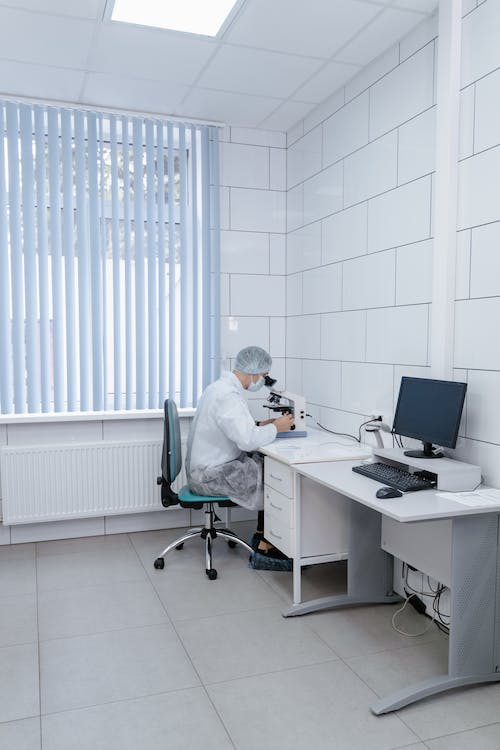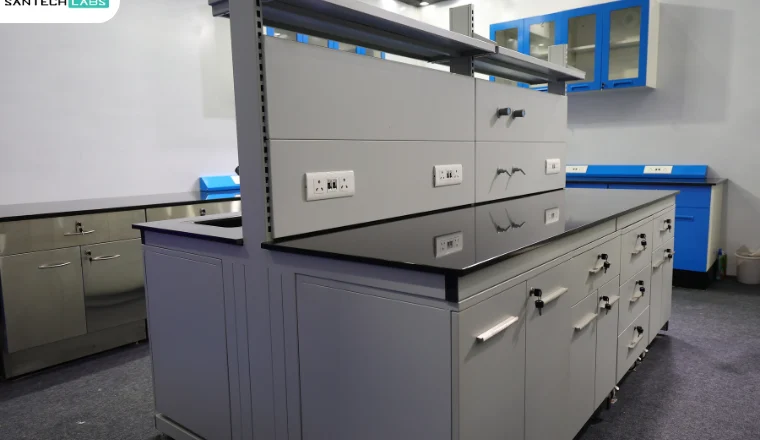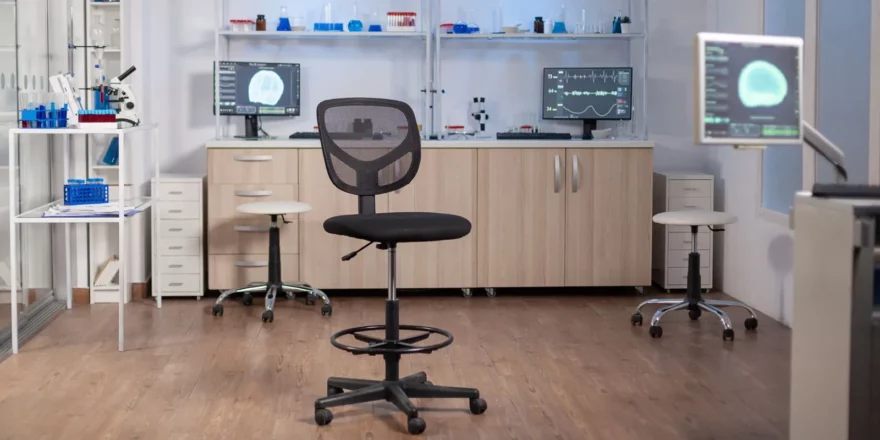The laboratory table is one of the key components you will come across when setting up or remodelling a lab. In the overall scheme of a laboratory setting, this seemingly unimportant piece of furniture is crucial in scientific study yet is sometimes disregarded. But why is it so crucial, and what should you think about before purchasing?
In this thorough guide, we will answer these questions and explore the intricate world of laboratory tables. We will dissect their essential features and functions, helping you make an informed decision when purchasing one for your laboratory. But before we dive into the details, let’s start with the basics and understand what a laboratory table is.
What Is A Laboratory Table?
A lab table is fundamentally more than just a flat surface supported by four legs. It is a specialised piece of furniture that has been painstakingly created to satisfy the particular scientific study and testing requirements. The scientific investigation focuses on a table where theories are tested, discoveries are created, and the limits of human understanding are continually pushed.
Essential Features To Consider When Buying A Laboratory Table
1. Material Matters
Stainless Steel:
Lab tables of stainless steel are recognised for their dependability and anti-corrosion properties. They are best suited for laboratories because of frequent chemical spills there. Because stainless steel is simple to keep clean and maintain, it is a great material choice for places where sterility is essential, such as medical research facilities.
Epoxy Resin:
Epoxy resin tables are another popular option. They offer excellent chemical resistance and can withstand the harshest laboratory environments. These tables are also known for their seamless and non-porous surfaces, which prevent liquids from seeping into the table, ensuring a hygienic workspace.
2. Size And Space Efficiency
Consider the available space in your laboratory. If you have a small lab, compact tables with efficient storage options may be more suitable. On the other hand, larger laboratories might benefit from spacious, multi-purpose tables that accommodate various research setups without crowding the workspace.
3. Height Adjustability
Laboratory work often involves long hours of experiments and analysis. Adjustable tables allow researchers to customise the height to their comfort, reducing the risk of back strain or discomfort. This feature also enables the table to adapt to different types of research, from sitting at a microscope to standing while conducting chemistry experiments.
4. Weight Capacity
A table for your lab should be able to support the weight of all the equipment and materials you use in your experiments. Before purchasing, calculate the maximum weight your table needs to bear, including equipment like microscopes, centrifuges, and computers. Ensure that the table’s weight capacity meets or exceeds these requirements.
5. Chemical Resistance
In laboratories, accidents happen, and spills are a common occurrence. Tables with chemical resistance are designed to withstand exposure to a wide range of chemicals without deteriorating. This feature not only protects the table but also maintains a safe and clean working environment.
6. Mobility And Flexibility
If your research frequently requires rearranging equipment or conducting experiments in different areas of the lab, consider tables with wheels or casters. These tables provide the mobility and flexibility needed to adapt to changing research needs quickly.
7. Storage Solutions
Efficient storage is vital for maintaining an organised laboratory. Look for tables that come with integrated storage solutions, such as drawers, shelves, or cabinets. These features help you keep equipment and materials neatly organised, saving time and enhancing overall efficiency.
8. Electrical And Plumbing Accessibility
Some experiments may require access to power outlets, gas lines, or plumbing. Ensure that the lab table you choose has provisions for these utilities. Built-in outlets, gas line access ports, and plumbing connections can significantly improve the efficiency and safety of your experiments.
9. Stability and Vibration Control
In labs where precision is paramount, tables with vibration-damping features are indispensable. These tables are designed to minimise vibrations that could affect sensitive experiments like microscopy or analytical measurements. Look for models with adjustable levelling feet to ensure a stable working surface.
10. Ergonomic Excellence
Think of the researchers who will make daily use of these tables. In order to ensure their comfort and well-being, ergonomics is essential. Some lab tables have elements that allow for height adjustment, enabling researchers to work at a level that minimises the danger of musculoskeletal strain.
11. Budget Considerations
While it’s essential to invest in quality laboratory furniture, it’s also crucial to stay within budget. Evaluate your financial constraints and research tables that offer the best value for your investment. Keep in mind that a durable, well-designed table can save you money in the long run by reducing maintenance and replacement costs.
Bottom Line
Choosing the perfect table for your lab involves a meticulous evaluation of these essential features, taking into account your laboratory’s specific needs. Remember that the laboratory table manufacturer you select plays a pivotal role in this process.
A reputable laboratory table manufacturer brings expertise to the table. They can provide guidance, offer custom solutions tailored to your requirements, and ensure that the products they offer adhere to industry standards. Collaborating with a trusted manufacturer ensures that your laboratory furniture aligns perfectly with your research objectives.




